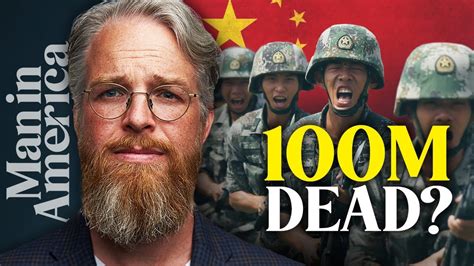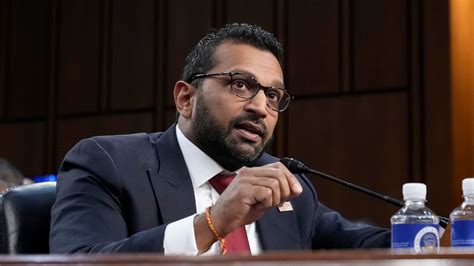
FBI investigations have uncovered a Chinese Communist Party (CCP) plot targeting American citizens, including potential plans to harm or assassinate individuals critical of the regime, according to recent warnings from experts.
An expert in Chinese affairs is raising alarms about increasingly aggressive actions by the Chinese Communist Party (CCP) inside the United States, including what he characterizes as a potential plot to harm or even kill American citizens critical of the regime. These concerns stem from recent FBI investigations and Justice Department indictments detailing alleged CCP-directed activities aimed at silencing dissent and exerting influence within the U.S.
According to testimony delivered to the House Select Committee on the Chinese Communist Party, China’s campaign includes direct threats to U.S. residents, including those who have fled China to escape persecution. The individual giving the testimony described these actions as part of a broader strategy by the CCP to extend its authoritarian reach beyond its borders, undermining American sovereignty and endangering its citizens.
Mounting Evidence of CCP Malign Activity
The warnings of this expert are supported by a string of recent cases prosecuted by the U.S. Department of Justice. These cases reveal a pattern of CCP attempts to suppress dissenting voices, collect intelligence, and interfere in U.S. political processes. One notable case involved the alleged targeting of individuals involved in pro-democracy movements.
Another incident involved an alleged scheme to interfere in a U.S. election. Federal prosecutors charged individuals with conspiring to disrupt the campaign of a congressional candidate who was critical of the CCP.
“These are not isolated incidents,” the expert stated, adding that they represent a “systematic effort” by the CCP to undermine American values and security. He emphasized that the CCP views the United States as its primary adversary and is willing to employ any means necessary to achieve its strategic objectives.
The FBI has been actively investigating these activities, leading to multiple arrests and indictments. The agency has also issued warnings to American citizens who may be targeted by the CCP, urging them to report any suspicious activity to law enforcement.
Targets and Methods of Operation
Those targeted by the CCP include dissidents, human rights activists, and anyone perceived as a threat to the regime’s interests. The methods used by the CCP include cyberattacks, espionage, and the use of intermediaries to carry out threats and intimidation.
The expert explained that the CCP often uses proxies to carry out its operations in the United States. These proxies may include Chinese nationals living in the U.S., as well as individuals recruited by the CCP to carry out specific tasks.
The CCP’s operations inside the United States are not limited to targeting individuals. The CCP also seeks to influence U.S. policy through lobbying, propaganda, and the cultivation of relationships with political and business leaders.
The expert warned that the CCP’s influence operations pose a significant threat to American democracy. He called on policymakers to take decisive action to counter the CCP’s malign activities and protect American citizens.
The Broader Geopolitical Context
The CCP’s alleged actions inside the United States are taking place against the backdrop of growing geopolitical tensions between the two countries. The United States and China are engaged in a strategic competition that spans multiple domains, including trade, technology, and military power.
The CCP views the United States as an obstacle to its ambitions to become the dominant global power. The CCP believes that the United States is determined to contain China’s rise and prevent it from achieving its goals.
The United States, on the other hand, views the CCP as an authoritarian regime that poses a threat to democracy and human rights. The United States is committed to defending its interests and values in the face of CCP aggression.
Calls for Action and Increased Vigilance
In light of the growing threat posed by the CCP, experts are calling for increased vigilance and decisive action. They recommend that the U.S. government strengthen its law enforcement and intelligence capabilities, as well as increase its efforts to counter CCP propaganda and influence operations.
The expert emphasized the importance of educating the American public about the CCP’s malign activities. He said that Americans need to understand the nature of the threat posed by the CCP in order to effectively counter it.
He also called on the U.S. government to work with its allies to confront the CCP’s aggression. He said that the United States cannot effectively counter the CCP alone and that it needs the support of its partners around the world.
“This is a challenge that requires a whole-of-government approach,” he said. “We need to use all the tools at our disposal to defend our interests and values in the face of CCP aggression.”
Detailed Breakdown of CCP Activities
The threat posed by the Chinese Communist Party (CCP) extends beyond mere espionage and cyberattacks; it encompasses a multifaceted campaign aimed at undermining American values, silencing dissent, and ultimately, challenging U.S. global leadership. Recent revelations and legal proceedings highlight the breadth and depth of these activities, painting a concerning picture of the CCP’s reach within the United States.
Targeting of Dissidents and Critics:
One of the most alarming aspects of the CCP’s operations is the targeting of individuals who are critical of the regime. This includes dissidents, human rights activists, and anyone who speaks out against the CCP’s policies. The methods used to silence these voices range from online harassment and surveillance to direct threats and intimidation.
- Operation Fox Hunt: This is a global campaign launched by the CCP to repatriate individuals accused of corruption or other crimes. However, critics argue that Operation Fox Hunt is often used as a pretext to target political opponents and dissidents living abroad. FBI Director Christopher Wray has publicly denounced Operation Fox Hunt, stating that it violates U.S. law and infringes on the sovereignty of the United States. The operation involves sending agents to the U.S. to harass and intimidate targets, often pressuring them to return to China.
- Targeting of Falun Gong Practitioners: The Falun Gong, a spiritual group banned in China, has long been a target of the CCP’s persecution. In the United States, Falun Gong practitioners have reported being harassed, threatened, and even attacked by individuals believed to be acting on behalf of the CCP. These incidents often involve vandalism of Falun Gong property, disruption of their events, and online smear campaigns.
- Suppression of Pro-Democracy Activists: Pro-democracy activists who advocate for political reforms in China have also been targeted by the CCP. These activists often face surveillance, harassment, and threats, both online and offline. In some cases, their family members in China have also been subjected to pressure and intimidation.
- Transnational Repression: The CCP’s efforts to silence dissent extend beyond the borders of China, reaching into the United States and other countries. This transnational repression involves using various tactics to intimidate, harass, and silence critics of the regime, regardless of their nationality or location.
Influence Operations and Propaganda:
The CCP employs a sophisticated network of influence operations and propaganda to shape public opinion and advance its strategic interests in the United States. These efforts involve a wide range of tactics, including:
- Confucius Institutes: These are cultural and educational centers funded by the Chinese government and located on university campuses around the world. While they are ostensibly designed to promote Chinese language and culture, critics argue that they also serve as platforms for spreading CCP propaganda and suppressing academic freedom. Many universities have closed their Confucius Institutes due to concerns about their influence on curriculum and research.
- Media Manipulation: The CCP has been accused of attempting to influence U.S. media outlets through various means, including purchasing advertising space, providing subsidized content, and cultivating relationships with journalists. These efforts are aimed at shaping media coverage of China in a way that is favorable to the CCP.
- Social Media Disinformation: The CCP utilizes social media platforms to spread disinformation and propaganda, often targeting specific groups or individuals. These campaigns are designed to sow discord, undermine trust in democratic institutions, and promote the CCP’s narrative.
- United Front Work: The United Front Work Department is an agency of the CCP that is responsible for cultivating relationships with individuals and organizations outside the party, both in China and abroad. The United Front is used to co-opt individuals and organizations that can be used to advance the CCP’s agenda. This includes cultivating relationships with political and business leaders, academics, and community groups.
- Lobbying and Political Influence: The CCP engages in extensive lobbying efforts in the United States, targeting members of Congress, government officials, and other influential figures. These efforts are aimed at shaping U.S. policy in a way that is favorable to China’s interests.
Economic Espionage and Intellectual Property Theft:
The CCP has been accused of engaging in widespread economic espionage and intellectual property theft, targeting U.S. companies and research institutions. These activities are aimed at acquiring valuable technology and trade secrets that can be used to benefit China’s economy and military.
- Cyber Espionage: The CCP has been linked to numerous cyberattacks targeting U.S. companies and government agencies. These attacks are often aimed at stealing intellectual property, trade secrets, and other sensitive information.
- Recruitment of Insiders: The CCP has been known to recruit insiders at U.S. companies and research institutions to steal confidential information. These insiders are often motivated by financial incentives or ideological beliefs.
- Reverse Engineering: The CCP has been accused of reverse engineering U.S. products and technologies to create its own versions. This practice allows China to quickly catch up with the United States in key industries.
Impact on American Society:
The CCP’s activities in the United States have a wide-ranging impact on American society, affecting everything from academic freedom and political discourse to economic competitiveness and national security.
- Erosion of Academic Freedom: The presence of Confucius Institutes and other CCP-funded programs on university campuses has raised concerns about the erosion of academic freedom. Critics argue that these programs can stifle discussion of sensitive topics, such as human rights and Taiwan.
- Polarization of Political Discourse: The CCP’s disinformation campaigns and influence operations can contribute to the polarization of political discourse in the United States. By sowing discord and undermining trust in democratic institutions, the CCP can weaken American society and make it more vulnerable to foreign interference.
- Economic Damage: Economic espionage and intellectual property theft can cause significant economic damage to U.S. companies and industries. These activities can lead to job losses, reduced innovation, and a loss of competitiveness.
- National Security Risks: The CCP’s activities in the United States can pose significant national security risks. For example, the theft of military technology can compromise U.S. military capabilities and endanger American lives.
Countermeasures and Strategies:
In response to the growing threat posed by the CCP, the U.S. government and other institutions are taking a range of countermeasures and strategies.
- Law Enforcement and Intelligence Efforts: The FBI and other law enforcement agencies are actively investigating CCP activities in the United States and prosecuting individuals who are found to be violating U.S. law. The intelligence community is also working to gather information about the CCP’s operations and to identify potential threats.
- Legislative Action: Congress has passed a number of laws aimed at countering CCP influence and protecting U.S. interests. These laws include measures to strengthen export controls, restrict foreign investment, and combat cyber espionage.
- Diplomatic Pressure: The U.S. government is using diplomatic pressure to urge China to cease its malign activities and to respect international law. This includes raising concerns about human rights, trade practices, and cyber espionage.
- Public Awareness Campaigns: The U.S. government and other organizations are conducting public awareness campaigns to educate Americans about the CCP’s activities and to encourage them to report any suspicious activity to law enforcement.
- Collaboration with Allies: The United States is working with its allies to counter the CCP’s aggression and to promote a rules-based international order. This includes coordinating policies on trade, security, and human rights.
The threat posed by the CCP is a complex and multifaceted challenge that requires a comprehensive and coordinated response. By strengthening its law enforcement and intelligence capabilities, taking legislative action, applying diplomatic pressure, raising public awareness, and collaborating with allies, the United States can effectively counter the CCP’s malign activities and protect its interests and values.
The expert concludes that the threat from China is not just a foreign policy issue, but a domestic one that affects all Americans. He urges Americans to be vigilant and to take steps to protect themselves from CCP influence.
The CCP’s Evolving Tactics and Global Reach
The Chinese Communist Party’s (CCP) activities within the United States represent a complex and evolving threat landscape. Understanding the nuances of their tactics, motivations, and global reach is crucial for developing effective countermeasures.
Technological Advancement and Surveillance:
The CCP is leveraging technological advancements to enhance its surveillance capabilities both within China and abroad. This includes the use of artificial intelligence (AI), facial recognition technology, and data analytics to monitor and track individuals of interest.
- Smart Cities and Surveillance: The CCP is promoting the development of “smart cities” in China, which are equipped with advanced surveillance systems that can monitor citizens’ activities in real-time. This technology is also being exported to other countries, raising concerns about its potential misuse.
- Social Credit System: The CCP is implementing a social credit system that assigns citizens a score based on their behavior. This score can be used to reward or punish individuals, depending on their compliance with government policies. Critics argue that the social credit system is a tool of social control that can be used to suppress dissent.
- Data Collection and Exploitation: The CCP is collecting vast amounts of data on individuals around the world, including Americans. This data is being used to build profiles of individuals, identify potential targets for recruitment or influence, and to develop AI-powered surveillance systems.
Expansion of Military Power and Global Influence:
The CCP is rapidly expanding its military power and seeking to increase its global influence. This includes the construction of military bases in strategic locations, the development of advanced weapons systems, and the projection of military power into the South China Sea and other regions.
- Belt and Road Initiative: The Belt and Road Initiative (BRI) is a massive infrastructure development project launched by the CCP that aims to connect China with other countries in Asia, Africa, and Europe. Critics argue that the BRI is a tool of economic coercion that can be used to expand China’s political influence.
- Military Modernization: The CCP is investing heavily in its military, with the goal of becoming a world-class military power by 2049. This includes the development of advanced weapons systems, such as hypersonic missiles, aircraft carriers, and stealth fighters.
- South China Sea: The CCP has been asserting its territorial claims in the South China Sea, building artificial islands and militarizing the region. This has led to tensions with other countries in the region, including the United States.
Challenges to International Norms and Institutions:
The CCP is challenging international norms and institutions, seeking to reshape the global order in its own image. This includes undermining multilateral organizations, promoting its own alternative models of governance, and challenging the principles of democracy and human rights.
- United Nations: The CCP is seeking to increase its influence within the United Nations and other international organizations. This includes promoting its own candidates for leadership positions, pushing for resolutions that are favorable to its interests, and using its veto power to block actions that it opposes.
- Alternative Models of Governance: The CCP is promoting its own alternative models of governance, such as “socialism with Chinese characteristics,” as a more effective way to address the challenges facing the world. This is a direct challenge to the principles of democracy and human rights.
- Cyber Sovereignty: The CCP is advocating for the concept of “cyber sovereignty,” which asserts that governments have the right to control and regulate the internet within their own borders. This is a challenge to the principles of a free and open internet.
The Importance of a Unified Response:
Addressing the challenges posed by the CCP requires a unified response from the United States and its allies. This includes:
- Strengthening Alliances: The United States needs to strengthen its alliances with countries in Asia, Europe, and other regions. This includes working together to counter CCP aggression, promote democracy and human rights, and maintain a rules-based international order.
- Investing in Innovation: The United States needs to invest in innovation in key areas, such as artificial intelligence, quantum computing, and biotechnology. This will help the United States maintain its technological edge over China.
- Protecting Critical Infrastructure: The United States needs to protect its critical infrastructure from cyberattacks and other forms of sabotage. This includes strengthening cybersecurity defenses, securing supply chains, and diversifying energy sources.
- Promoting Human Rights: The United States needs to continue to promote human rights in China. This includes speaking out against human rights abuses, supporting civil society organizations, and imposing sanctions on individuals and entities responsible for human rights violations.
- Educating the Public: The United States needs to educate the public about the CCP’s activities and the challenges it poses. This includes raising awareness about the CCP’s propaganda, influence operations, and economic espionage.
By taking these steps, the United States can effectively counter the CCP’s malign activities and protect its interests and values. The challenge is significant, but with a unified and determined response, the United States can succeed.
FAQ Section
1. What specific actions by the CCP are raising concerns about potential harm to Americans?
FBI investigations and Justice Department indictments reveal alleged CCP-directed activities aimed at silencing dissent and exerting influence within the U.S., including direct threats to U.S. residents who have fled China to escape persecution. Tactics include cyberattacks, espionage, and the use of intermediaries to carry out threats and intimidation against dissidents, human rights activists, and anyone perceived as a threat to the regime’s interests. The expert testified about actions that included threats to U.S. residents.
2. How does the CCP target dissidents and critics within the United States?
The CCP employs various methods, including Operation Fox Hunt (targeting individuals accused of corruption but often used against political opponents), harassment of Falun Gong practitioners, suppression of pro-democracy activists, and transnational repression to silence critics of the regime. These tactics involve online harassment, surveillance, direct threats, vandalism, disruption of events, and pressure on family members in China.
3. What are some examples of CCP influence operations and propaganda efforts in the U.S.?
The CCP utilizes Confucius Institutes (cultural and educational centers on university campuses), media manipulation, social media disinformation, United Front Work (cultivating relationships with individuals and organizations), and lobbying efforts to shape public opinion and advance its strategic interests. These efforts aim to promote CCP narratives, undermine trust in democratic institutions, and influence U.S. policy.
4. How does economic espionage and intellectual property theft by the CCP impact the U.S.?
The CCP engages in widespread economic espionage and intellectual property theft through cyberattacks, recruitment of insiders, and reverse engineering of U.S. products and technologies. This results in economic damage to U.S. companies and industries, including job losses, reduced innovation, and a loss of competitiveness, while also posing national security risks through the theft of military technology.
5. What countermeasures are being taken by the U.S. government to address CCP activities?
The U.S. government is employing law enforcement and intelligence efforts, legislative action (strengthening export controls and restricting foreign investment), diplomatic pressure, public awareness campaigns, and collaboration with allies to counter CCP influence and protect U.S. interests. These strategies aim to investigate and prosecute CCP activities, strengthen cybersecurity, promote human rights, and educate the public about the challenges posed by the CCP.









